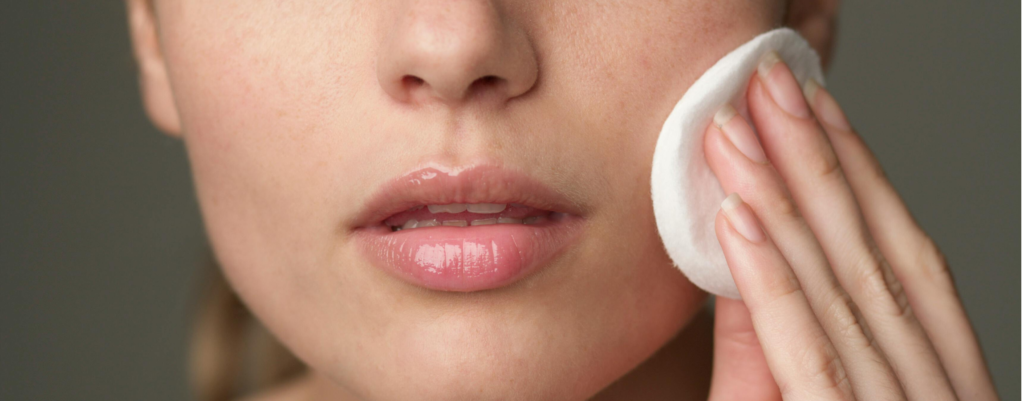- March 21, 2025
Throughout Ramadan, fasting, dietary changes, and disrupted sleep can affect the skin’s natural balance. To help navigate these challenges, we turned to Dr. Azhar Al Rakkad – Specialist in skincare and aesthetic at Dubai’s Via Medical and Plastic Surgery Center, for expert advice. In this interview, Dr. Al Rakkad shares key skincare tips to maintain healthy, hydrated skin throughout the month, ensuring you feel your best from within.
How does fasting affect skin, hair, and scalp health?
Fasting means spending long hours abstaining from food and water, this generally leads to the body’s dehydration, specifically affecting the skin. There are certain factors that may lead to further dehydration during fasting, causing skin dryness -which is a common issue we perceive during Ramadan. Amongst those, the diet followed during the month, especially one that involves the consumption of more juices and caffeinated drinks. Caffeine depletes water from the cells, contributing to dryness. Similarly, juices or any drinks with high sugar intake can exacerbate dryness. So, it’s not really about fasting, it’s how you break your fast that affects your skin.
What foods should be avoided during the month, for better skin?
Whether during Ramadan, or throughout the year, we really should consume less sugar. Sugar is the skin’s number one enemy. As I mentioned, caffeine leads to further dehydration also. Simultaneously, consuming more vegetables during the fast can provide the body and the skin with more water. It all goes back to the diet we follow. We are well known in this part of the world for our fried pastries, which are present on almost every table during the holy month. Consuming fried food on a semi daily basis has dangerous repercussions on the skin. So is the high consumption of dairy products. Both eating habits can worsen any skin condition, especially when the body is not getting enough water.

What are the most common skin and hair concerns during Ramadan?
Acne. Again, this skin condition is a result of more dairy and fried food consumption. We also see a spike in rosacea cases throughout the month, due to long hours spent in the kitchen, surrounded by the steam coming out of the oven. As for hair and scalp conditions, we see more dryness and itchiness than usual.
How can dullness, dryness, or breakouts be prevented while fasting?
By consuming more vegetables. More protein as well. Avoiding the heat, whether in the kitchen or by spending long hours in the sun or under hot water in the shower.
Should skincare and haircare routines be adjusted during Ramadan? If so, how?
Stick to your usual skincare routine, as long as it covers the necessities. Vitamin C is an essential step in every routine. Hyaluronic acid ensures intense hydration and improves skin elasticity. Equally significant is the moisturizer that suits your skin type. If anything, use your moisturizer more often. If you’re leaving the house during daytime, your SPF is your shield against skin damage.
What skin regiments can be followed to ensure better skin protection? Are there specific products that you would recommend?
Moisturizing the skin daily is the most important step. For extreme skin dryness cases, we resort to products that contain urea or ceramides. CeraVe and Cetaphil can be quite effective in such cases. Skinceuticals hydrating B5 serum is a favorite product of mine, and it perfectly suits those with a sensitive skin or an acne-prone skin type. La Roche Posay’s Mela B3 enhances the skin barrier, the niacinamide in it improves the skin texture.
Are there particular hair treatments that help nourish the scalp and hair?
The best shampoo you can use is the one that suits you and your hair type. This varies from one person to another. If you suffer from dandruff for example, your go-to shampoo is one that has zinc within its list of ingredients. Also, a good hair conditioner is a must in every haircare regiment, and I cannot stress that enough.
How does disrupted sleep affect skin and hair, and what can be done to minimize the impact?
Poor sleep can disrupt the skin's ability to repair and regenerate, which can intensify dehydration, especially if you're fasting and not drinking enough water during the day. Lack of proper sleep can also lead to an increase in skin sensitivity, causing it to become more reactive, irritated, or inflamed. You’ll start to notice an increase in dullness on your face, the less regular sleep you get.
What post-Ramadan treatments or rituals can help rejuvenate skin, hair, and scalp?
Skin boosters among other skin treatments can restore your skin’s moisture levels, if done occasionally. Certain supplements like Vitamin D and Vitamin C can also help rejuvenate the skin, if their levels are at a low following the fast – this better be checked through blood tests. For your hair, if your regular regiment isn’t giving you the results you want, hair fillers could be an option. The main ingredient in this technique is hyaluronic acid, which can ensure hair follicles hydration, and increase hair thickness. For a more accessible treatment, I recommend biotin supplements, which promote hair health and growth.


